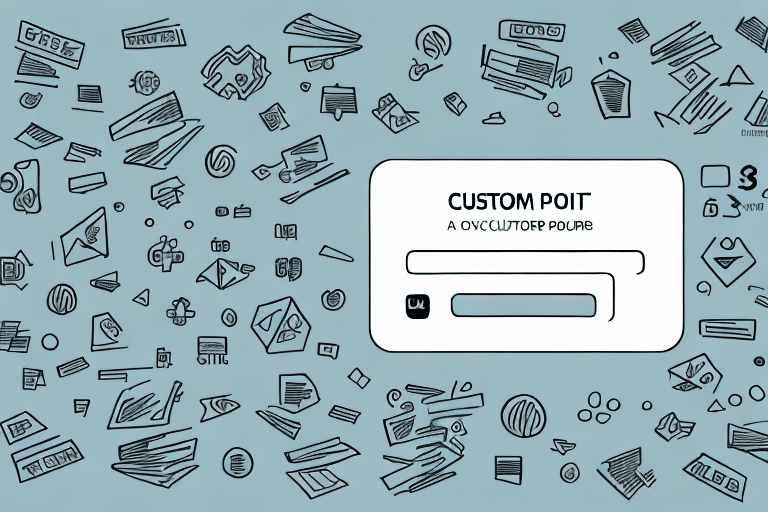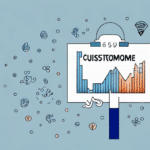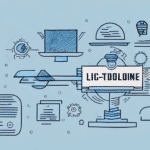The Importance of Customer Retention in Business Success
In today’s highly competitive market, businesses recognize that attracting and retaining loyal customers is crucial to their success. Customer retention refers to a company's ability to keep its customers coming back and doing business with them repeatedly. It is a vital aspect of any business strategy and involves various techniques and initiatives to ensure that customers stay loyal to your brand.
Understanding the Role of Customer Retention
Customer retention is essential for building a loyal customer base and ensuring long-term revenue. Retaining existing customers is significantly more cost-effective than acquiring new ones. According to a Harvard Business Review study, increasing customer retention rates by just 5% can boost profits by 25% to 95%. This highlights the importance of focusing on retaining customers through personalized experiences, excellent customer service, and effective retention strategies.
Key Statistics and Data on Customer Retention
Data shows that loyal customers tend to spend more and refer others to your business. For instance, repeat customers are 9 times more likely to convert compared to new leads (Invesp). Additionally, improving customer retention by 2% can increase profits by up to 10% to 20% (Bain & Company).
The Psychology Behind Customer Loyalty
Understanding the psychological factors that drive customer loyalty is crucial for developing effective retention strategies. Customer loyalty is built on positive experiences and emotional connections that customers have with a brand.
Building Trust with Your Customers
Trust is a fundamental component of customer loyalty. Customers are more likely to remain loyal to a brand they trust. Trust is established through consistent delivery of quality products or services, transparent communication, and reliable customer support. Brands that prioritize building trust are better positioned to retain their customers long-term.
Creating Emotional Connections
Emotional connections play a significant role in customer loyalty. Personalized experiences that resonate on an emotional level can make customers feel valued and appreciated. This emotional bond encourages customers to stay loyal and engage more deeply with the brand.
Effective Strategies for Enhancing Customer Retention
Implementing effective customer retention strategies can significantly improve your business's ability to maintain a loyal customer base.
Crafting Compelling Customer Retention Phrases
Effective customer retention phrases can help build relationships and encourage repeat business. Phrases like “Thank you for your continued support” or “We appreciate your loyalty” make customers feel valued. Personalizing these phrases by including the customer’s name or referencing specific interactions can enhance their impact.
Personalizing the Customer Experience
Personalization ensures that customers feel appreciated and valued. This can be achieved through customized recommendations, personalized emails, and tailored loyalty programs. Collecting and analyzing customer data, such as purchase history and browsing behavior, allows businesses to tailor their offerings to better meet customer needs.
Using Storytelling to Connect with Customers
Storytelling is a powerful tool for building emotional connections with customers. Sharing stories about your brand’s values, mission, and the people behind the brand can humanize your business and make it more relatable. Additionally, sharing customer success stories can demonstrate the impact of your products or services, fostering a sense of community and trust.
Leveraging Social Proof to Boost Loyalty
Social proof, such as positive reviews, testimonials, and endorsements, can significantly enhance customer loyalty. Showcasing customer success stories through case studies, interviews, or social media posts can build trust and attract new customers. Partnering with influencers or industry experts to endorse your brand can also increase credibility and attract a broader audience.
Identifying and Preventing Customer Churn
Customer churn refers to the rate at which customers stop doing business with a company. Identifying at-risk customers is crucial for reducing churn and improving retention rates.
Recognizing At-Risk Customers
Indicators of at-risk customers include a drop in engagement, increased complaints, and delayed payments. By monitoring these signals, businesses can proactively address issues and implement strategies to retain these customers.
Using Data Analytics to Prevent Churn
Data analytics provides valuable insights into customer behavior and trends. By analyzing usage patterns, businesses can identify decreases in product or service usage that may indicate diminishing value for the customer. Additionally, monitoring social media mentions and reviews can offer real-time feedback on customer satisfaction and potential issues.
Measuring and Evaluating Retention Strategies
Measuring the success of your customer retention strategies is essential for continuous improvement.
Key Metrics for Customer Retention
Important metrics include customer lifetime value (CLV), customer retention rate, and the number of repeat customers. Tracking these metrics helps businesses assess the effectiveness of their retention strategies and identify areas for improvement.
Assessing Customer Satisfaction
Customer satisfaction is a critical indicator of retention success. Conducting surveys and gathering feedback can provide insights into how satisfied customers are with your products or services. This information can be used to refine retention strategies and address any underlying issues.
Evaluating Overall Impact
A successful retention strategy positively impacts revenue, brand reputation, and customer loyalty. Conversely, a poorly executed strategy can lead to lost customers and damage to your brand. Regularly evaluating and adjusting your retention strategies ensures their effectiveness and sustained positive impact on your business.
Rewarding and Recognizing Loyal Customers
Recognizing and rewarding loyal customers is an effective way to encourage repeat business and foster long-term relationships.
Implementing Loyalty Programs
Loyalty programs that offer points, exclusive discounts, or special offers reward customers for their repeat business. These incentives not only increase customer satisfaction but also strengthen the relationship between the customer and the brand.
Personalized Rewards and Recognition
Offering personalized rewards, such as early access to new products or personalized thank-you messages, makes customers feel valued. These gestures can significantly enhance customer loyalty by showing appreciation for their continued support.
Best Practices for Maintaining Strong Customer Relationships
Maintaining strong relationships with customers requires ongoing engagement and personalized interactions.
Providing Exceptional Customer Service
Excellent customer service builds trust and loyalty. Listening to customer feedback, promptly resolving issues, and exceeding customer expectations are key practices for fostering long-term relationships.
Continuous Engagement and Personalization
Ongoing engagement through personalized communication, such as tailored emails and targeted marketing campaigns, keeps customers connected to your brand. Utilizing data analytics to understand customer preferences allows for more effective and personalized interactions.
Utilizing Data to Enhance Relationships
Data-driven insights enable businesses to anticipate customer needs and preferences, allowing for proactive engagement. By understanding customer behavior, businesses can tailor their offerings and communication strategies to better serve their audience.
In conclusion, implementing effective customer retention strategies is essential for building and maintaining a loyal customer base. By focusing on personalized experiences, leveraging social proof, rewarding loyalty, and consistently measuring and refining your strategies, businesses can build trust, foster loyalty, and achieve long-term success.




















